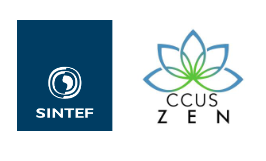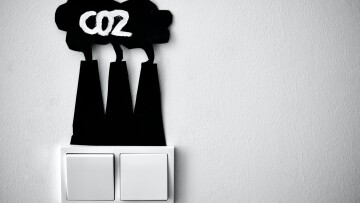New EU project aims to increase knowledge of Carbon Capture, Utilization and Storage
Novia University of Applied Sciences is a project partner in a new EU project, which aims to increase knowledge of Carbon Capture, Utilization and Storage (CCUS) and accelerate its roll-out. The project is focused on the Baltic and Mediterranean regions.
To meet the challenging targets of the Paris Agreement, global CO2 emissions must be reduced by 50-85 percent by 2050. A large part of the CO2emissions in Europe comes from industry.
Carbon Capture, Utilization and Storage (CCUS) can play a crucial role in ensuring that energy-intensive industries and the power sector in Europe are able to transition to climate neutrality, and for the EU to be able to deliver on its net-zero commitments. According to the International Energy Agency, to achieve the Paris Agreement’s goals, 14 percent of the total emissions reduction by 2060 must come from CCS. This involves capturing waste carbon dioxide, transporting it in pipelines or ships, and storing it to prevent it from entering the atmosphere. In the case of utilization, the captured CO2 is used to make new products.
Network for knowledge and dissemination
CCUS ZEN (Zero Emission Network) aims to contribute to reducing CO2 emissions from industrial clusters and hubs in Europe by building networks and sharing knowledge and experience of CCUS. SINTEF, the Norwegian applied research group, is coordinating both the project and the network, which currently consists of 14 partners and around 40 network partners from eight EU member states.
“To achieve implementation of CCUS in Europe, participation, and support from a wide range of actors across the CCUS value chain is crucial”, said Eirik Falck da Silva, CCUS ZEN project coordinator and research manager at SINTEF.
The partners have broad expertise and knowledge across the CCUS value chain: the network includes partners working in CCUS infrastructure, including ports, transport, ships, the pipeline industry, energy, and CO2 storage.
“CCUS is a crucial part of making Europe capable to transition to climate neutrality. To achieve this, participation, and support from a wide range of actors across the CCUS value chain is essential”, said Eirik Falck da Silva, CCUS ZEN project coordinator.
The network’s goal is to foster effective knowledge sharing, enable faster development of CCUS projects and identify potential new initiatives in CO2 transport and storage. Countries and regions further ahead in the development and use of CCUS can contribute knowledge to countries with less experience. The project will focus on the Baltic region and the Mediterranean region.
“We are delighted to have already brought together many key academic and industry partners and hope we can expand our network further over the next two and a half years”, said Falck da Silva.
Kick-off in Paris
The project started in September, with all 14 partners and 60 network members gathering for a kick-off meeting in Paris. The event was hosted by one of the partners, Technip Energies. The two-day event gave the opportunity to participants to connect and align on project milestones and main objectives. Workshops were held to share technical, regulatory, development planning and commercial insights
About SINTEF
SINTEF is one of the world's leading R&D organizations involved in CO2 capture, transport, and storage. Together with our partners at Norwegian University of Science and Technology (NTNU), SINTEF researchers have been working on CCS/CCUS for decades. The Norwegian government’s Longship project, the first cross-border, open-source CO2 transport and storage project, has helped bring the concept of CCS/CCUS into the mainstream.
About CCS/CCUS
Carbon Capture, Transport & Storage (CCS) is a series of technologies and processes designed to help mitigate climate change. It involves capturing waste CO2 from industrial processes, transporting it in concentrated form and injecting it deep underground for permanent storage. According to the UN’s to meet the Paris Agreement, global CO2 emissions must be reduced by 50-85 percent by 2050. Read more about CCS/CCUS at sintef.no (https://www.sintef.no/en/sintef-research-areas/ccs/)
FACTS ABOUT THE PROJECT
CCUS ZEN (Zero emission network) is funded by the EU’s Horizon Europe. The project’s start date was 1 September 2022. It will last for 2.5 years.
Partners in the project:
- SINTEF AS (coordinator), Norway
- Tallinn University of Technology, Estonia
- CO2 Value Europe AISBL, Belgium
- Perspectives Climate Research, Germany
- Polish Geological Institute – National Research Institute, Poland
- Novia University of Applied Sciences, Finland
- Geological Survey of Denmark and Greenland, Denmark
- Middle East Technical University, Turkey
- Bureau de Recherches Géologiques et Minières (BRGM), France
- IOM law, Norway
- Technip Energies, France
- Rambøll, Denmark
- Axelera, France
- University of Edinburgh, UK
- In addition, the project has around 40 network partners
CONTACT
Sintef, Eirik Falck da Silva +47 94845691 eirik.silva@sintef.no
Partner at Novia UAS, Farid Karimi, Senior Researcher, farid.karimi@novia.fi

